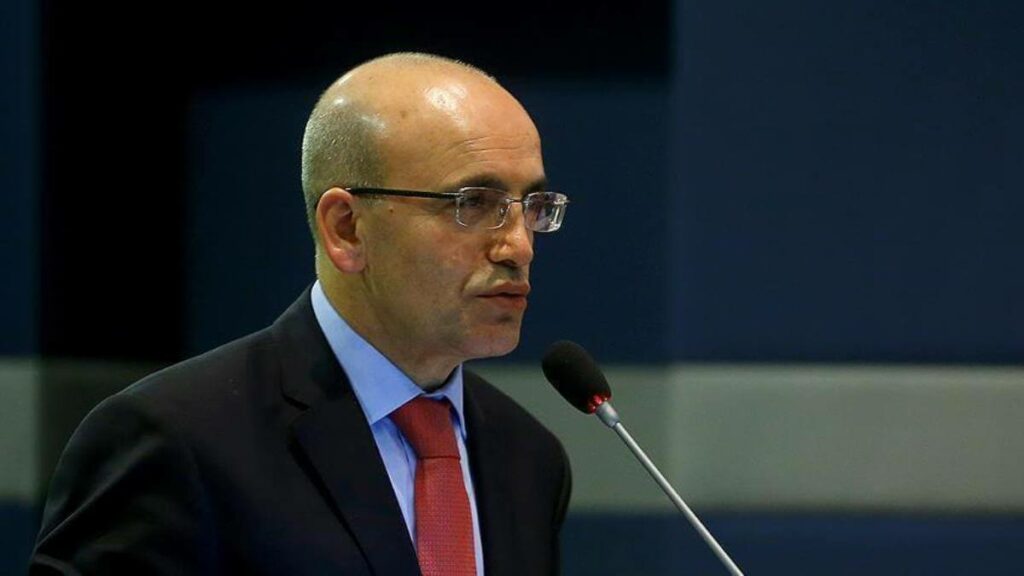Former deputy prime minister and finance minister Mehmet Şimşek has rejected an offer from President Recep Tayyip Erdoğan to rejoin his party and economy team, saying he wants to stay out of politics.
Şimşek, a former Merrill Lynch London economist and strategist who served in parliament between 2007 and 2018 from the ruling Justice and Development Party (AKP), was not nominated by the party in the general election of 2018.
He announced on Twitter on Monday that he had a cordial meeting with Erdoğan at AKP headquarters in Ankara but does not plan to enter active politics due to his work with financial organizations abroad, although he did say he’s ready to offer his help to Erdoğan’s government in his area of expertise.
Şimşek’s refusal to join Erdoğan has come yet as another blow to the president, who is desperately seeking new allies ahead of what many say the most challenging election in his career.
Turkey will hold presidential and parliamentary elections on May 14. Erdoğan, who was first elected to the presidency in 2014, is seeking re-election at a time when opinion surveys show him lagging behind Kemal Kılıçdaroğlu, leader of the main opposition Republican People’s Party (CHP) and the presidential candidate of an opposition bloc of six parties.
Erdoğan’s popularity has suffered mainly due to the erosion of the standard of living caused by depreciation of the Turkish lira and runaway inflation, which rose to more than 85 percent last year.
Erdoğan is criticized for mishandling the economy, emptying the state’s coffers and establishing one-man rule in the country where dissent is suppressed and opponents are jailed on politically motivated charges.
The government’s poor and ineffective response to two powerful earthquakes in the country’s south last month that claimed more than 50,000 lives and left millions homeless has also contributed to Erdoğan’s loss of support among the public.
Şimşek’s refusal to work with Erdoğan has led to claims that Erdoğan’s unconventional monetary policies have led to such serious economic deterioration that Şimşek does not think he can be of any help to put the country’s economy back on track.
Aslı Aydıntaşbaş, a Turkish journalist and a visiting fellow at the Brookings Institution, commented on Şimşek’s decision on Twitter, saying: “Former Finance Minister Mehmet Simsek refuses Erdogan’s offer to come in to his economic team. Simsek knows Turkish economy’s one-man micromanagement and unorthodox policies would make success on the economic front impossible.”
Erdoğan promotes a controversial economic model that is based on low interest rates and appoints chairpersons to the country’s central bank as well as the finance ministry who also act in line with his economic model and against the raising of interest rates.
In 2021 Turkey embarked on a rate-cutting cycle in the face of soaring inflation, defying traditional monetary policy and running against a global trend of rising borrowing costs.
The Turkish central bank slashed its benchmark rate by 500 basis points in 2021 and then again in 2022, after calls for rate cuts from Erdoğan.
Savaş Genç, a Turkish professor of political science at Germany’s Heidelberg University, also commented on Şimşek’s decision not to join the AKP, saying why would Şimşek bear the burden of “a hopeless despotic, one-man’s rule” when it’s been abandoned by Erdoğan’s son-in-law and a small opposition party Erdoğan sought to ally with.
On Monday leader of the New Welfare Party (YRP) Fatih Erbakan announced that his party would not take part in any election alliance including that of the AKP and that he would run as a candidate in the presidential election. Erdoğan’s AKP sought to forge an alliance with the party last week.
Erdoğan’s son-in-law Berat Albayrak, in a surprise move in November 2020, stepped down from the position of finance minister, citing health reasons, which led to comments that he did not want to be responsible for the country’s economic turmoil.

